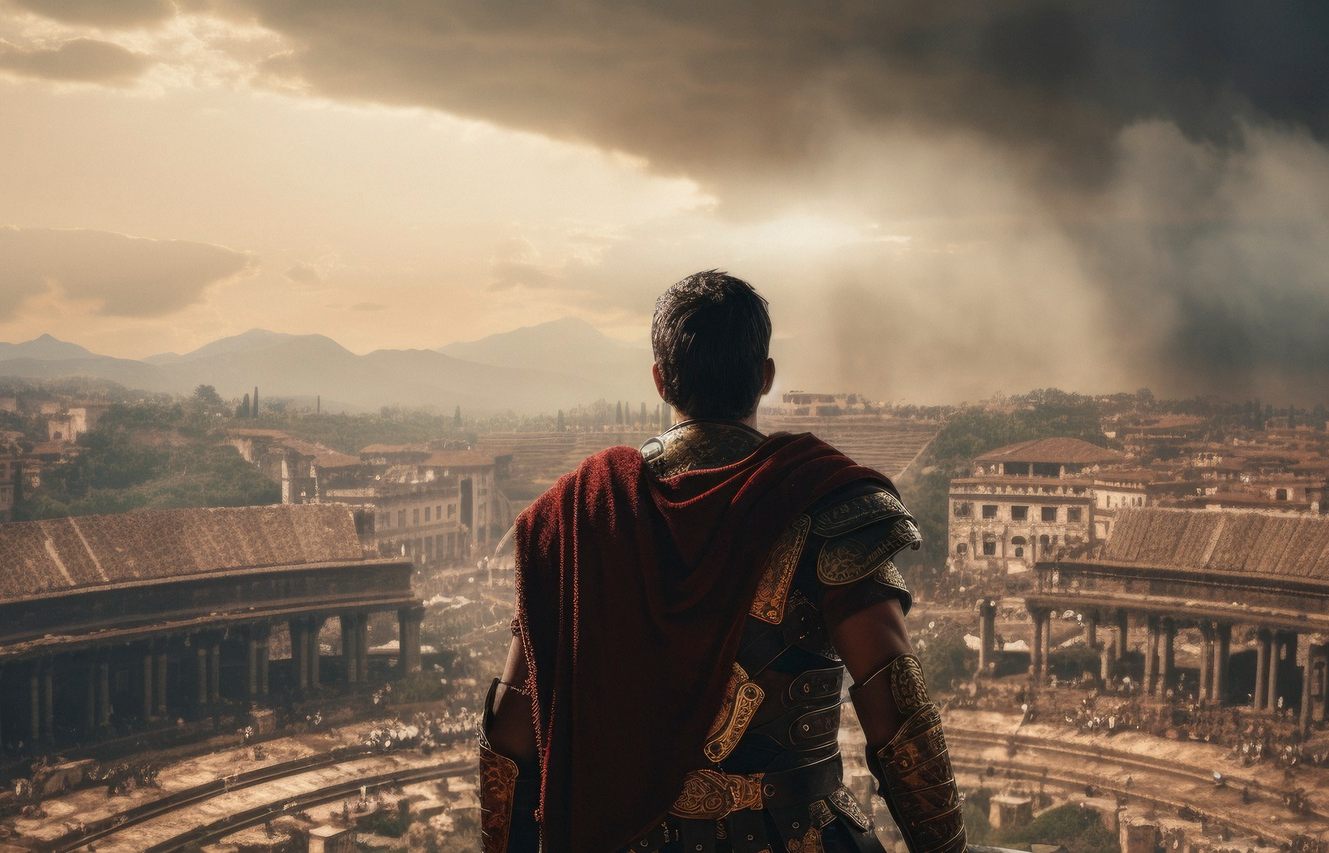Throughout the process of researching for the Kingdom of Man, I was surprised by just how little has changed throughout recent church history. For whatever reason, we seem to never learn from the mistakes of our past, making the axiom that there is “nothing new under the sun” fairly accurate.
Although this fact is quite depressing, it does raise some interesting questions. When people refuse to learn from the past, there are usually a few possibilities:
- Ignorance is bliss. Perhaps some are just ignorant of history.
- They don’t care about the truth.
- There is a different reason for the repetition.
Like a spotlight upon history, the Kingdom of Man brought the first option out into public view. Unfortunately, it had very little effect on those within evangelicalism. But why? How can a person look directly into the eyes of truth and still maintain their lie? Only one answer is possible – the truth isn’t actually the truth.
It is only the truth if it addresses the real circumstances in which the individual finds themselves. It’s not that they are intentionally disregarding the truth they are confronted with. Instead, they ignore it because they believe it’s not their truth. They don’t see the historical situation as being the same as their present one.
Moreover, when we take a step back and look at the current situation, it becomes evident that well-intentioned individuals who earnestly uphold their faith can paradoxically endorse a figure like Donald Trump, whose ethical indifference and behaviors often contradict Christian values. This possibility means that the motivations driving their support are a means to an end. Trump serves as a vehicle to achieve broader political or social objectives regardless of the moral capitulation.
Believe it or not, we have seen this situation before.
Make Rome Great Again (MRGA)
Recently, I decided to brush up on church history. Since I have been reading with a newer set of eyes (it has been about 20 years since I read this particular book), I began seeing things I never saw before. Themes that began to arise when I had the right eyes to see them. One such night was when I read the section on Constantine (which I almost skipped over because I am so familiar with the story). But this time it was different. I began seeing things that were strikingly similar to our own day.
The era of Constantine has always been considered by historians as one of those moments that changed the course of history. As the story goes, in 312, Constantine fought in the Battle of the Milvian Bridge. It is claimed that the night before, he had a dream or vision about the Christian God, and he was told that if he fought in the name of this God, he would be granted victory. So, before he went into battle, he had his men paint a Chi/Rho (X/P) on their shields (a very old Christian symbol standing for “Christ”). Needless to say, he was victorious, and the following year, he signed the Edict of Milan, making Christianity legal.
This transformation was perceived by Church leaders as divine intervention, reinforcing their belief that God had intervened to rescue the Church from its previous trials and persecutions. Many of these religious leaders believed the divine intervention meant that the long-awaited Kingdom of God would be arriving, and Constantine was going to be the one to lead the way. These religious leaders began to snuggle up to Constantine, praising him in their writings or in person. As a result, Constantine started to fund the building of opulent cathedrals and even sponsored the first Bible editions.
But there was a problem. Constantine wasn’t actually a Christian. He still held to his cherished belief in the “Unconquered Sun” god, and he would often oscillate depending on the political tides. Constantine viewed the Christian God as just one of many options he had in his back pocket. Contrary to what you may have heard, Constantine did not make Christianity legal because he was a Christian, but because he desired peace. Constantine’s end goal was to make Rome great again, and he would use whatever means necessary to accomplish that goal.
But a significant portion of Church leaders (whom we call the Church Fathers) at the time easily ignored that fact or convinced themselves he was a Christian because they were safe and lavished with power and influence. They justified this relationship by arguing that they could spread the gospel to more people. But, in reality, their support made them safe.
However, there were other groups of Christians at the time that very much disagreed with the direction of the Church and thought that it was a capitulation of the gospel for power. These people were subsequently known as the “Desert Fathers” and later became the foundation for monasticism. For this group, retreating to the desert was the only way they could truly worship God apart from the influence of the empire.
They were right to do so because the Church began to incorporate pagan practices into its worship of God. Practices like kneeling to pray, hierarchical leadership structures, and sanctuary designs that reflected the palaces. We also see a shift to the use of precious metals for building and crafting. Even adopting the term “Priest” for their leaders was a reflection of a pagan practice. Ultimately, these ornate churches were a sign of the times and demonstrated the wealth and power they were accumulating. Even worse, Constantine began making religious and theological decisions for the Church.
However, they justified their meteoric rise to power as God establishing the Kingdom that had been promised through Jesus a few hundred years prior. Moreover, they were able to justify their relationship to Rome as a means to an end. Christianity was spreading, and people were beating down the doors of the Church demanding to be baptized.
Does any of this sound familiar?
And this was not the only time we have seen this. Perhaps the Reformation was the next significant example at “creating” the Kingdom of God. The reformers were keen on assimilating secular and religious law in order to create Kingdom like communities. These laws were perceived as divine fiat and would even be a means of persecution of other Christian groups who disagreed with those in power.
A few hundred years later the Puritans and other Christian groups would attempt the same in their new found land. Later, these communities would even use evangelism as an excuse for slavery.
Make America Great Again (MAGA)
Much of the same justification can be seen today. Despite the fact that we have numerous examples of how dangerous (and dare I say “unbiblical”) these ideas are.
Trump uses conservative evangelicals for political gain only because they have significant numbers, and they are easy to convince. The deep conviction of many evangelicals to support republican ideals is a reflection of the same zeal they express with their faith. This, regardless of whether their understanding of our country’s dynamics or the Bible’s is correct.
In fact, Trump is well aware of this dynamic and uses it to his advantage by pandering to various conservative Christian groups through promised policies on sexuality and abortion. However, the moment Trump wavers in his actions, he will lose that bloc because, for evangelicals, Trump is also a means to an end. This means Trump will say whatever these groups want to hear in order to keep them under his control.
Just as was true for the Constantinian era, so too is it true in the Trump era; conservative Christians are using Trump as their chosen leader to help usher in the Kingdom of God.
Concluding Thoughts
Is ignorance really bliss? Ignorance may provide a temporary sense of happiness, but it ultimately leads to a distorted understanding of reality, particularly when one prioritizes personal happiness and comfort over the well-being of others. This self-centered approach disregards the clear call of Jesus to be humble and to serve others in love. You cannot serve others in love while at the same time ostracizing them.
By avoiding the complexities of truth and the potential discomfort that comes with it, individuals risk fostering a superficial existence that neglects deeper relationships, which are necessary for sharing the love of Christ. True fulfillment arises not from ignorance, but from a conscious engagement with the world, where happiness is pursued in harmony with the needs and rights of others. That is the type of Kingdom Jesus spoke about.
Just as easily as zeal can lead to righteousness, it can also lead to bigotry, hate, and lust for power. There is a fine line that can at times be difficult for some to see. It is only with true wisdom that one can discern the difference.
False piety can cover up a multitude of sins. But what is done in the dark will one day be revealed by the light of Christ.
“Did we not prophecy in your name, and in your name drive out demons and in your name perform many miracles?” And the answer to them will be simple and concise, “Depart from me, for I never knew you”.
You can view my UNenlightenment YouTube Channel HERE
You can view my UNenlightenment Podcast HERE
You can follow me on FaceBook HERE
Transform your life today by getting my book UNenlightenment HERE
Purchase my newest book The Kingdom of Man HERE














